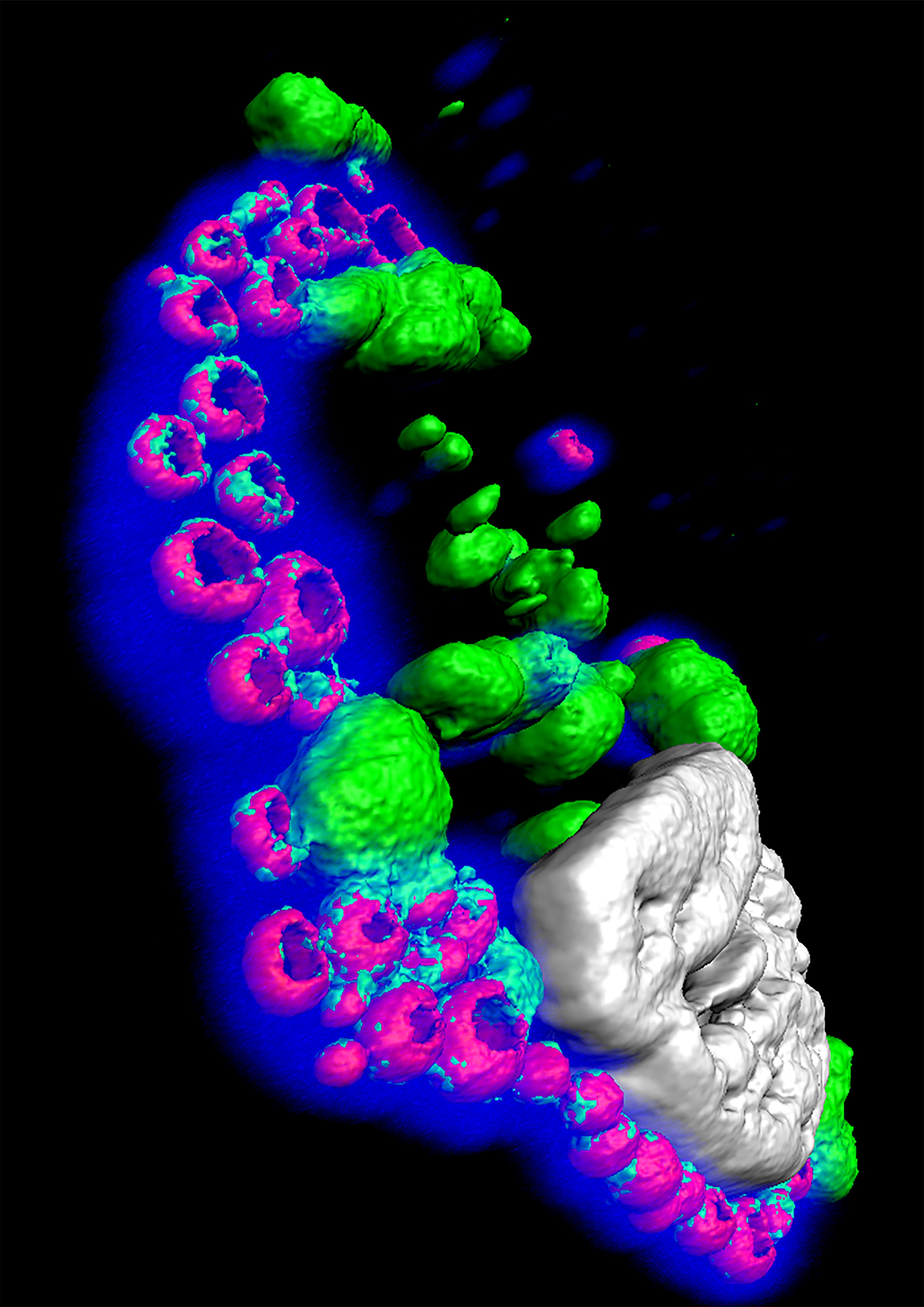
The Department of Molecular and Cellular Biology hosts 14 independent research groups working in two broad, closely interwoven research areas, with the goal of identifying specific therapeutic targets for use in disease prevention and control. The first area focuses on dissecting viral replication mechanisms and on structural studies of key viral proteins, as well as virus-host interactions for important human and veterinary pathogens. The identification of virus and cell elements with key roles in virus replication is essential for the rational design and implementation of new strategies for disease control. Understanding the mechanisms that allow a virus to evade or counteract innate and adaptive host immune responses will allow generation of innovative vaccination strategies and virus-based vaccine vectors. The second area centres on the networks that control mammalian gene expression and on characterising specific genes with critical roles in normal and pathological processes. The aim of this research programme is to identify and exploit molecular targets for diagnostics and therapy. In addition to generating leading edge research, studies in our department help to provide essential scientific background for the development of new biotechnological tools.
Our department also counts with a virus biotechnology platform (VBP) that was created with the aim of providing integral biotechnological solutions to health challenges caused by human and animal viruses. In this regard, in the context of the COVID-19 pandemic several groups have devoted their efforts to fight against SARS-CoV-2 by: i) developing vaccines based on non-replicative SARS-CoV-2 replicons and on poxvirus recombinants; ii) developing a high throughput screening platform to test compound libraries for their antiviral potential against SARS-CoV-2; iii) producing recombinant SARS-CoV-2 proteins as antigens for the development of serological test and potential vaccines; iv) producing monoclonal antibodies for anti-viral therapy; v) controlling viral infection through the modulation of cellular energy metabolism; and vi) using the CRISPR/cas13d technology as a therapeutic tool to target coronavirus RNA genome.
Head of Department: Isabel Sola
OUR RESEARCH GROUPS:
Molecular bases of actin cytoskeleton reorganization in neuritogenesis, cell motility, tumor generation and invasiveness. Inés Antón
Replication, virus-host interactions, and protection in coronavirus. Luis Enjuanes and Isabel Sola
Poxvirus and vaccines. Mariano Esteban
Interacciones virus-hospedador en la infección por hepatitis B. Urtzi Garaigorta
Hepatitis C viral infection. Pablo Gastaminza
Animal models by genetic manipulation. Lluís Montoliu
Functional analysis of the transcriptional repressor DREAM. José Ramón Naranjo
Cerebral cortical development. Marta Nieto
Mechanisms of interaction between the influenza virus and the infected cell. Amelia Nieto, until February 2020
Dynamics of RNA viruses in infected patients. New antiviral designs. Celia Perales
Molecular characterisation and epidemiology of torovirus. Dolores Rodríguez and Fernando Almazán
Molecular biology of birnavirus. José F. Rodríguez
Embryonic development and differentiation in vertebrates. Juan José Sanz-Ezquerro
Bacteria-based immunotherapies against cancer. Esteban Veiga Chacón
Junior Groups
Effect of viral and host factors on innate immunity, respiratory virus replication and pathogenesis.
Marta López de Diego







